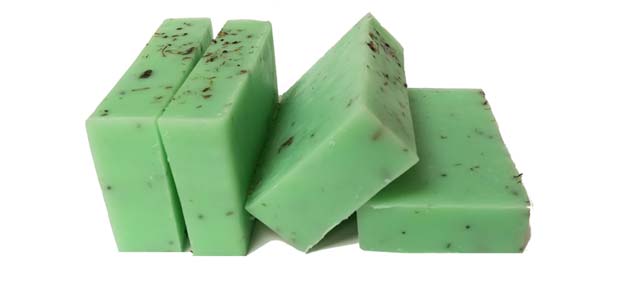Most of the commercial soaps contain chemicals that can be harmful to the skin and using a natural herbal soap can be a good alternative. Herbal soaps are made using natural herbs and ingredients that are healthier and beneficial for the skin and are less likely to cause any damaging effect. Some of the natural soap manufacturers also use aroma therapy and herbal treatments to offer the best skin treatment solution for your skin.
Made of rare herbs and 100% natural ingredients, herbal soaps have found to be highly beneficial for the skin. The herbs infused in these soaps have therapeutic and healing characteristics that offer specific benefits to the skin, such as nourishment, strength, healing and moisturizing. These soaps also contain super fatty oils, Vitamin E, aloe vera and essential oils, that all lead to the goodness of skin and overall health.
Herbal soaps are also effective in curing different skin complaints. These soaps also contain glycerin, which is generally not used in commercial soaps. Glycerin helps in retaining the moisture in the skin thereby making these soaps for dry skin conditions.

Good quality herbal soaps are made using natural herbs, food grade vegetable oils, essential oils and other natural ingredients. Some common ingredients that are used in making these soaps are certified organic olive, coconut, palm, soybean, castor and almond oils, with the addition of cocoa butter, shea butter, aloe vera, vitamin e and essential oils. These soaps do not contain any additives, synthetics, fillers, petroleum distillates, chemicals, dyes, or metals.
Different types of herbs that are used in making these soaps, include - burdock, comfrey, eucalyptus, hyssop, oat straw, plantain, red clover, rosemary and witch hazel.
The different types of essential oils that are used in making herbal soaps are -
Buying Tips - Herbal Soaps
When choosing a herbal soap, carefully check the ingredients. Some soaps
manufacturers may also claim to use ingredients, such as lavender, while
they actually use lavender scented oil, which is not a same thing as an
essential oil and does not produce the same effect. Scented oil is not the
same thing as the essential oils and will not produce the same effect.
Depending on the condition and sensitivity of your skin, suitable herbal
soaps can be selected. A moisturizing soap with natural and herbal
ingredients can be selected to reap the best results.
Soaps that are made using traditional cod processing technique should be preferred as they contain and retain the nutritional value of herbs used in the manufacturing of soap.
If you have dry skin, you should select a herbal soap that has been made using oatmeal and/or avocado extracts. The herbal soaps made for dry skin generally contain lavender, peppermint, and spearmint oils as these ingredient help in getting rid of impurities in the skin. If you have oily skin, you should look for a herbal soap with almond oil or one that has been made using calendula oil. Soaps containing tea oil are also found to be effective in curing oily skin conditions.

If you have decided to make soap at home, you will need soap making supplies in the form of raw materials, soap making equipment & tools ...
Read More
Someone has rightly said that clothes are not just clothes. They form an integral part of a person's personality and tell a lot about their nature and...
Read MoreCleansing products play an important role in the daily lives of people.
Both soaps and detergents are cleansing products that we frequently use in our
Soap is designed as a product to be used once and then flushed down the drain...